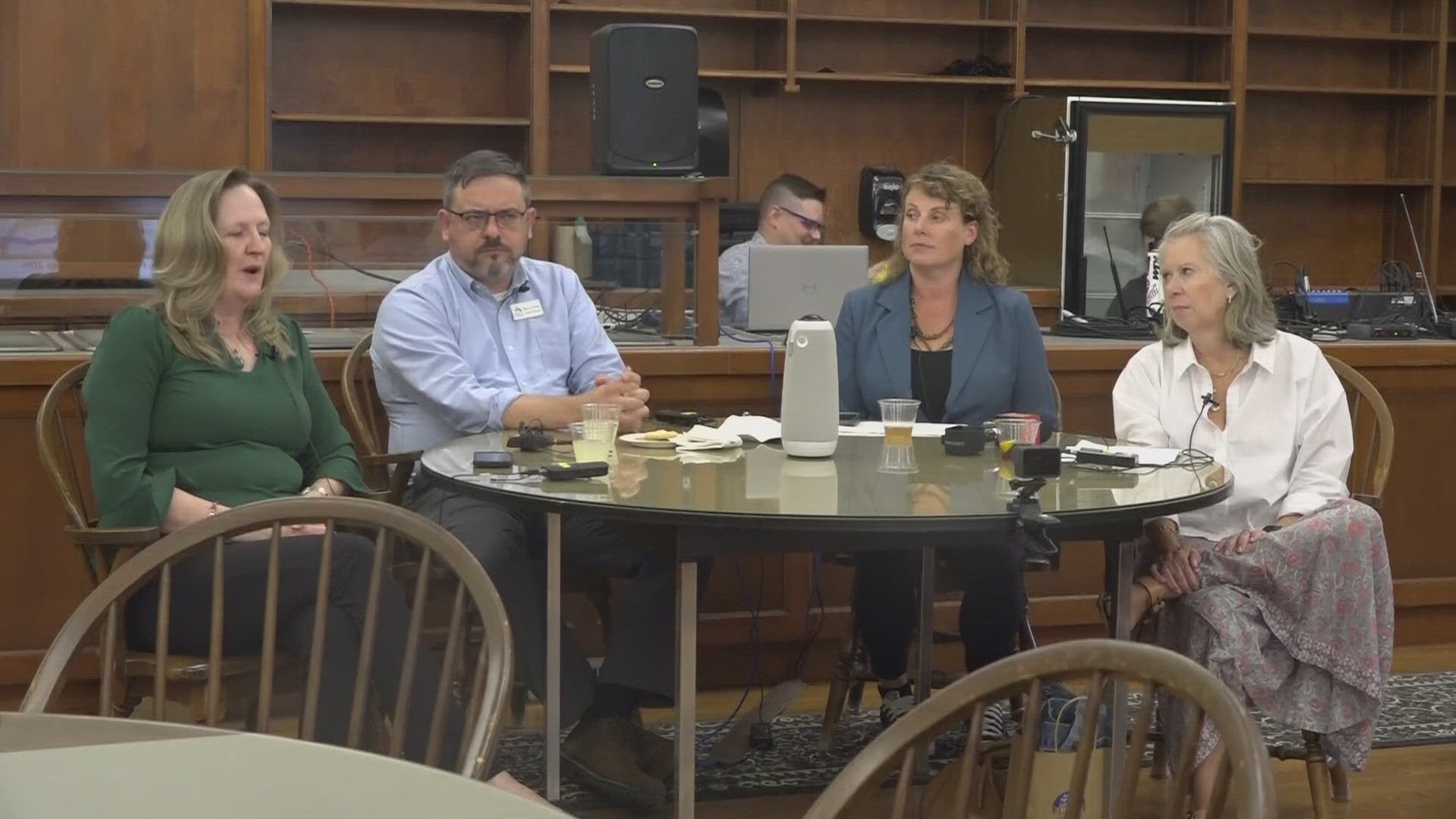ORONO, Maine — On Tuesday, four panelists were invited to the University of Maine's Fogler Library for a special "The Salon Series" event on censorship.
Library leaders took a look at the current global situation, discussed how to manage these types of events if a person confronts you about it, and how to build support networks for libraries and librarians, among other topics.
The panelists included Beth Andersen, the current president of the Maine School Library Association, Lori Fisher, state librarian for the Maine State Library, Sonya Durney, the president of the Maine Library Association, and Ben Treat, the director of the Bangor Public Library. All sat down at a round table for a two-hour conversation with UMaine students and Zoom guests on book banning efforts that have been happening in Maine.
Daisy Singh, the dean of libraries for the University of Maine, organized this event. Singh said the hybrid event was also an opportunity to open the event for everyone, to have a participating audience across the state.
For those who were unable to attend, Singh made sure to get one important point across.
"They {people} should feel free to take action on some kind of school board or write a letter to a council person or someone in order to take action against book bans and challenges," she explained. "And I would say that another is to recognize and appreciate all the work that the librarians are doing, as well as others in the community, in terms of maybe pushback that they are receiving. And to be aware of it, and to be acknowledging and thank them for it."
"What's unique about what's been happening in the past few years is the amount of challenges, the type of challenges, and where this is going," Fisher said.
"The rhetoric is specifically things like: If there is one piece of sexual content in a book, then the whole thing is an obscenity," Treat said. "That hasn't been the standard for decades, right? That isn't a standard that anyone accepts for what obscenity is, and yet that's the standard they are using in books."
"It's also taking away from our mission to support libraries and library workers in that we are spending so much time sort of dealing with these censorship efforts when we could be strengthening our organizations in other ways," Durney said.
Andersen told the crowd that between January 2022 and August 2023, there were 22 formal book challenges in schools in Maine. Many more informal challenges have also occurred.
"Discussions at school board meetings that have often turned very contentious, and very aggressive with name calling, which then has spilled over to social media and created quite unfriendly situations," Andersen explained.
"Trying to harass librarians both online and in person -- this is one of the biggest things that takes an emotional toll," Fisher added.
All panelists agreed on the importance of thanking our local and school libraries for all the work and effort they give day in and day out to keep the libraries a welcoming and safe place for everyone. They emphasized that librarians should strive every day to protect the community's access to information.
"[Librarians] know how to select materials for their community, and they do it well, and so to have that totally dismissed and put aside that certain people in the community can say, 'Oh nobody should read this,' it's really a slap in the face and nobody needs that," Fisher said.
With 255 public libraries in Maine, all four panelists said they know censorship efforts will continue. So, they suggest people and students speak up at public meetings to make their voices heard about why keeping a specific book on the shelf is important to them.
-

